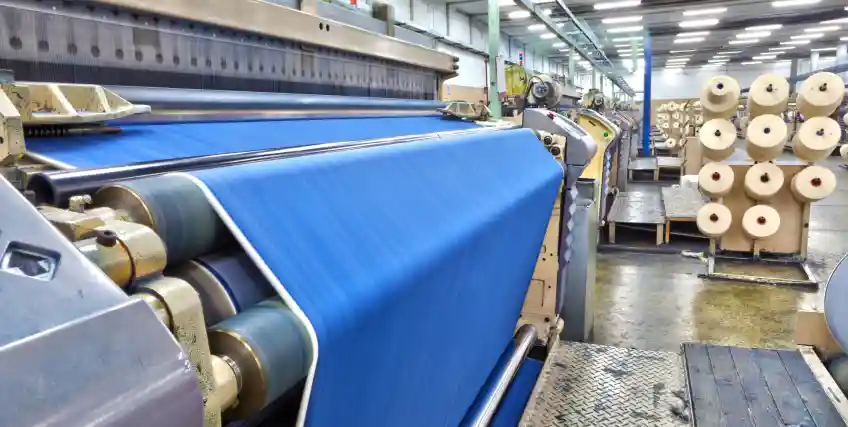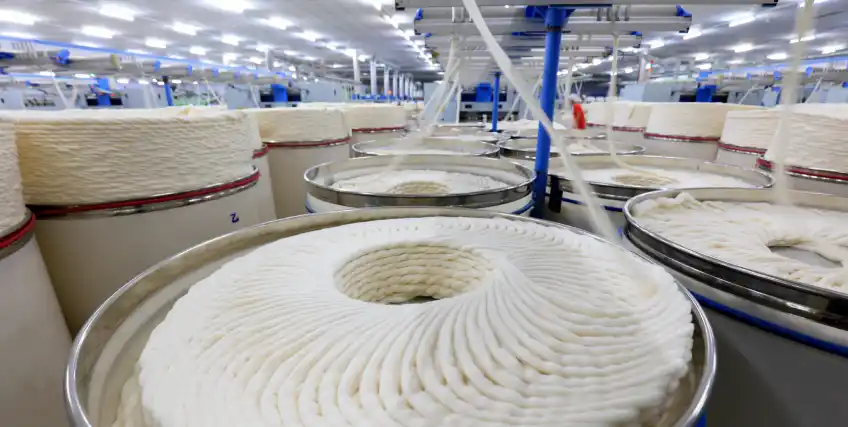Popular Apparel Financing Options for Small Fashion Brands
Sep 02, 2025 | Last Updated on: Sep 03, 2025

Behind every successful small fashion brand lies more than just creativity, taking smart financial decisions plays a huge role. Apparel businesses often struggle to manage cash flow amid shifting sales and rising production costs. However, to grow your business, you need the right apparel financing solution that fits your business’s unique needs.
In this article, we’ll explore the top apparel financing options for small business owners. We’ll discuss how these solutions work, who they serve best, and why they’re important for your brand’s future. So, let’s dive into some flexible funding options for fashion brands.
Understanding Apparel Financing for Small Fashion Brands
Apparel financing means accessing funds to cover production costs, raw materials, and day-to-day operations for small fashion brands. In today’s time, the apparel industry is highly competitive, with many startups and retailers needing working capital.
These industries also face seasonality and supply chain delays that can tighten liquidity. So, how to tackle these situations? Apparel companies often require apparel financing solutions to address these demands. For instance, larger orders from wholesalers or ecommerce clients may need upfront funding. Additionally, sustainable practices in the textile industry also call for smart investments, including textile financing.
In New York and other fashion hubs, business owners often seek apparel financing options that combine flexibility with reasonable interest rates. Therefore, understanding these options help ensure steady cash flow and smooth operations for small business owners.
Popular Apparel Financing Options for Small Fashion Brands
When choosing the right clothing store financing option, you need to understand your brand’s goals, business size, and financial health. Here are some of the most popular funding solutions for apparel brands in the U.S.
SBA Loans
SBA loans are backed by the U.S. Small Business Administration and are one of the common choices for apparel businesses. These business loans often come with lower interest rates and longer repayment terms. However, the eligibility requirements can be a bit strict with lengthy application processes.
Apparel businesses or small fashion brands can use SBA loans to cover production costs, purchase new equipment, or expand stores. Additionally, this apparel financing option can be used to finance textile purchases for a new collection. While the application process is thorough, the low rates for these small business loans make it worth considering.
Business Lines of Credit
A business line of credit is a flexible financing option that offers quick access to funds when needed up to a set credit limit. Borrowers can draw funds when needed and pay interest only on the amount used.
Small fashion brands can use a line of credit to cover short-term working capital needs or handle seasonal supply chain challenges. This apparel financing option can also be used to fund large orders, cover unexpected expenses, or cover raw materials costs before receiving payments from accounts receivable. Hence, retailers can use a line of credit to manage easy payment terms with wholesalers or suppliers.
Term Loans
Term loan is a traditional financing option that offers a lump sum loan amount upfront that can be repaid over a set period of time. These traditional loans come with a fixed interest rate and fixed repayment terms and are offered by various banks, credit unions, and traditional lenders. As a result, these bank loans make it easy for business owners to pay in monthly payments.
Apparel businesses can use term loans to fund one-time large investments like launching a new store, covering production costs, purchasing textiles, or hiring designers. Fashion brands that operate in ecommerce or deal with large orders can use term loans as apparel financing solutions when in need of fast and strategic funding.
Invoice Factoring
Invoice factoring is a funding solution where apparel companies can sell their outstanding invoices to factoring companies. These companies then convert accounts receivable into quick cash. This works well for small fashion brands that supply wholesalers or have long payment terms.
Apparel brands can use invoice factoring to improve cash flow without adding debt, manage supply chain costs, and deal with production expenses. Hence, this short-term apparel financing option is particularly common in the textile and fashion industry where payment delays affect operations.
Equipment Financing
Equipment financing is a funding solution that helps startups and small businesses to purchase essential business assets. Instead of paying upfront cash for the equipment, small business owners can pay in easy monthly payments. Moreover, the equipment itself serves as collateral, reducing the risk for the lenders.
Apparel businesses can use equipment financing to purchase modern machinery or energy-efficient equipment that reduces waste and boosts productivity. Therefore, this apparel financing option for equipment purchases supports sustainability initiatives by preserving working capital needs.
Merchant Cash Advance (MCA)
Merchant cash advances is an alternative financing option that offers quick cash in exchange for a portion of future credit card of debit card sales. This is a short-term financing option that can be used by apparel brands facing urgent liquidity issues.
Small fashion brands can use MCA to fulfill large orders from wholesalers or retailers by financing production costs. This apparel financing option works best for brands with predictable sales or strong partnerships. However, always think twice or talk to a financial advisor before considering this funding option as it comes with higher interest rates and fees.
Asset-Based Lending
Asset-based lending is a form of flexible financing solution, often secured by company assets, such as inventory, account receivable, or equipment. This apparel financing option offers more borrowing power and helps manage working capital during slow sales cycles.
Apparel businesses can use asset-based lending to fund expansion or supply chain improvements. Hence, businesses with significant assets but limited credit history can find this funding solution useful for their small businesses.
How to Choose the Right Financing Option
Choosing the best apparel financing option depends on your brand’s situation. Therefore, when selecting the right financing option, keep these factors in mind:
- Amount of funding needed: Make sure to know how much loan amount you need for your apparel business. Small amounts might fit lines of credit, while large expansions call for SBA or traditional loans.
- Purpose: Identify the needs of your business before considering any apparel financing option. Understand whether you need funds for production costs, equipment purchases, or to cover cash flow gaps.
- Repayment terms: Read all the repayment terms and consider how repayment can affect your business’s cash flow and liquidity.
- Credit and eligibility: When offering financing options, some providers require a strong credit score, while others focus on assets or purchase orders. So, ask your lender about the eligibility requirements.
- Speed: Understand how fast your business needs funds and how you will repay the amount. For example, invoice factoring and merchant cash advances offer fast access to funds, but come with higher costs.
Tips to Improve Your Chances of Getting Financing
Here are some important tips to improve your chances of securing the right apparel financing solutions.
- Create a detailed business plan and explain how funds will be used.
- Gather all the necessary documents such as tax returns and financial statements to show revenue and expenses clearly.
- Always maintain a strong credit score and good payment history with lenders.
- Understand lender requirements and eligibility criteria before applying for a business loan.
- Build partnerships with suppliers and lenders for trust and recommendations.
Hence, strong documentation and relationships help secure favorable terms and lower interest rates when applying for apparel financing solutions. Moreover, these steps can shorten approval times and improve your brand’s financial health.
The Bottom Line
Small apparel brands face unique challenges in managing cash flow, production costs, and growth. Nevertheless, the fashion industry offers many apparel financing options, from SBA loans and business lines of credit to factoring and equipment financing.
Understanding these options helps business owners choose flexible financing solutions that fit their needs. Additionally, preparing well and avoiding common mistakes improve chances of approval and lower interest rates.
Whether you run a clothing store in New York or a textile startup on the West Coast, exploring these financing solutions can fuel your brand’s success. Hence, assess your current cash flow and production needs today. Then, connect with lenders or providers who can support your vision.
FAQs About Apparel Financing Solutions
What is the ideal financing option for a small fashion brand?
The ideal apparel financing option often depends on your brand’s needs, business model, and current financial situation. Some apparel businesses prefer SBA loans for long-term growth, while others may rely on lines of credit to manage seasonal cash flow. Therefore, it really comes down to your goals, how much you need, and how quickly you need it.
How can I improve my chances of getting approved for apparel financing?
Many lenders look at credit scores, business history, cash flow, and how you plan to use the funds. To improve your chances of getting approved for financing, keep your financial records organized and draft a solid business plan. However, loan approval standards can vary widely depending on the provider and loan type.
Is invoice factoring a good idea for apparel companies?
Invoice factoring can help with cash flow, especially if you work with retailers or wholesalers that pay on delayed terms. However, it may not suit every apparel business, particularly if profit margins are tight. Hence, for those needing quick access to working capital, it can be a useful tool.
Do I need a strong credit score to qualify for apparel financing?
A strong credit score can help, especially with traditional financing or term loans. However, some lenders focus more on your business’s revenue, accounts receivable, or purchase orders. There are also alternative financing solutions that may be more flexible if your credit isn’t perfect.
Can new fashion startups qualify for financing?
Some startups can qualify, though it may depend on your business plan, projected sales, or partnerships. Certain providers offer startup-friendly financing options like merchant cash advances or PO financing. However, the terms may not always be ideal, but they can help get your business off the ground.
Frequent searches leading to this page
Term Loans are made by Itria Ventures LLC or Cross River Bank, Member FDIC. This is not a deposit product. California residents: Itria Ventures LLC is licensed by the Department of Financial Protection and Innovation. Loans are made or arranged pursuant to California Financing Law License # 60DBO-35839




